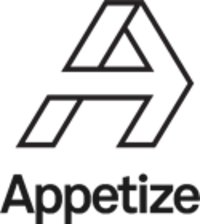Thursday, March 1, 2018
A Conversation With Appetize's Kevin Anderson On Getting Customer Service Right

This year, we're again sponsoring the Recurring Revenue Conference (www.recurringrevenueconference.com), presented by Sutton Capital Partners. As part of the lead in to the conference, and as a part of our sponsor relationship with the conference, we're running a series of interviews with speakers from the conference about their experience in the area of recurring revenues, customer service, and similar topics. Ahead of the conference, we sat down and spoke with Kevin Anderson, co-founder and CSO of Los Angeles-based Appetize (www.appetizeapp.com), a rapidly growing developer of point-of-sale software, on the topic of customer service.
What has been the biggest lesson you've learned in retaining and keeping customers?

Kevin Anderson: I think a couple of things. One, is listening to them, at the most basic level. Since the beginning, we've invested in a relationship management function within our organization, and we've always invested first in quality support. Whether that's our help desk, our account managers, or even the sales guys, to a certain degree, we put the customer first .We listen to them to iterate our product, and that's how we get buy-in from our customers. That was important, especially in the early days, to get them to use a brand new piece of software. The second, was investing in relationship management and support. One of our big mantras, internally, is to be the fastest responder when you see a customer email us. Even if you don't have the answer immediately, we'll shoot them an email right away, saying, we hear you, even if we tell them we have to find out the answer. Whether you're a sales person, or in operations, or in finance, we've really called that out as something that is a tenet to being someone at Appetize. We respond very quickly to all of our customers. Our customers tell us that, especially, compared to our legacy competitors, that's the different between hearing immediately from a live person who cares versus having to open a support ticket from someone they've outsourced customer support to overseas, and not hearing back for several days. That's a huge different, and we've prioritized that as we've grown the company.
Lots of startups talk about trying to outsource all their customer support. It sounds like you actually do all your customer service in house?
Kevin Anderson. We do. It's all in house. We have a variety of different roles within customer service and support, including our help desk, and our relationship managers. On the other end of the spectrum, we have customer success managers and also have account managers. At the very basic level, we have folks responding to email, phone, chat, and text from our suport line, with account managers at the next level working on training, installations, and higher level support. Our customer success managers help manage key clients, and make sure of the success of clients who have been clients for awhile. Our relationship managers at at top, managing accounts and large properties from the senior level.
When did you figure out you needed to get customer service right?
Kevin Anderson: Our very first hire, our Director of Support, is still here today. That tells you something, that our first hire was on the support side of the organization. We tasked him to be an internal trainer, as well as our director of support, and every new hire we have made—and last year, we hired around 120 to 130 people—he trained every one of them. He's instilled our core values of support and customer-first, and fast response times, even if you don't have the answer right away. His name is Quinton Myers. Having Quinton being the face, internally, of who Appetize is as our first employee, really has helped us in scaling, and keeping our culture and core values together.
So how big is the company now?
Kevin Anderson: We're now at 215 people, and we have a green light to hire a couple of dozen more folks on the engineering side of things. We're continuing to grow.
Is there anything you would have done differently than when you started, if you'd known better?
Kevin Anderson: That's a good question. It's tough to say, because we were able to learn a lot of lessons early on, which allowed us to pivot and gain more focus and traction, as well as more insights and data, which led us to where we are today. I think, looking back, we had more focus early on. We were trying to be payment software for all people, at all times, and for all industries. The minute we honed in that we're payment software for enterprise businesses, for this set of 8-10 industries, starting with sports and entertainment, and now education—we really started to get saturation and momentum. That allowed us to move into the professional and restaurant chain area. I think we just learned the value of focus at an early stage, which allowed us to move at a very quick pace. Today, the product that comes out of our company, and the features we kick out today, are all very well thought through. There's been a lot of testing out in the wild, and lots of QA behind it, and lots of intelligent thought on why and how we did it. In the early days, we did not have as much focus on the platform or on go-to-market as we should, until we finally honed in on the idea of focus, which allowed us to figure out what we were the best at, where the clients are, and what they need, which is where we are today.
Thanks!
The Recurring Revenue Conference, Presented by Sutton Capital Partners, is being held on April 12th.